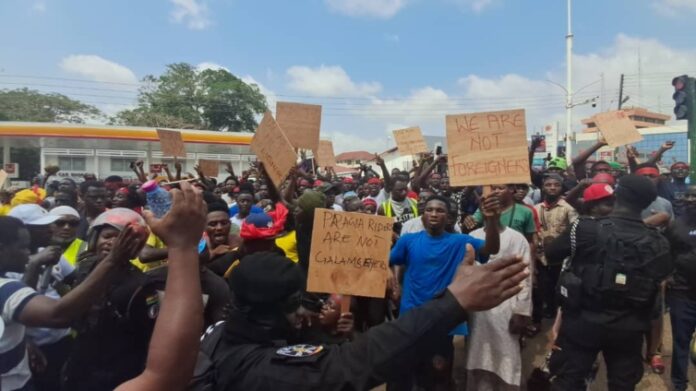Hundreds of Pragya riders in Kumasi on Thursday poured onto the streets to protest a road traffic directive that bars their tricycles from operating within the Central Business District, including Adum and Kejetia.
The riders, who make up a significant portion of the city’s informal transport system, say the ban has crippled their livelihoods and exposed them to daily harassment from city authorities.
The demonstrators first converged at the Kumasi Metropolitan Assembly (KMA) to present a petition to the Mayor before continuing their march through selected parts of the city.
Ashanti Regional Chairman of the National Union of Tricycle Operators Ghana, Seidu Mubarak, said the action was sparked by what operators describe as persistent intimidation and extortion by local authorities.
“Today, we are here to demonstrate against the KMA on the kind of harassment, extortion and the continued disregard of the challenges we are facing as tricycle operators,” he told JOYNEWS.
“There are many appeals we have made to the assembly, yet they refuse to hear us.”
He added that riders had expected a turnaround following political assurances during the 2024 election campaign.
According to him, the National Democratic Congress (NDC) promised in its manifesto to regularise and legalise tricycle operations — a commitment the riders say is yet to materialise.
Mubarak further noted that government previously initiated steps towards establishing a regulatory framework for tricycles, including sending union representatives and the Transport Minister to Rwanda to study best practices.
“They have been back since March this year, and till today, we don’t know where we are. So we want to call on the government to fast-track the legalisation,” he said.
The KMA insists the directive is necessary to ease congestion and enhance safety within the busy Adum–Kejetia enclave.
However, riders argue that without alternative routes or a clear regulatory framework, the ban amounts to discrimination against low-income transport workers.
ALSO READ:



